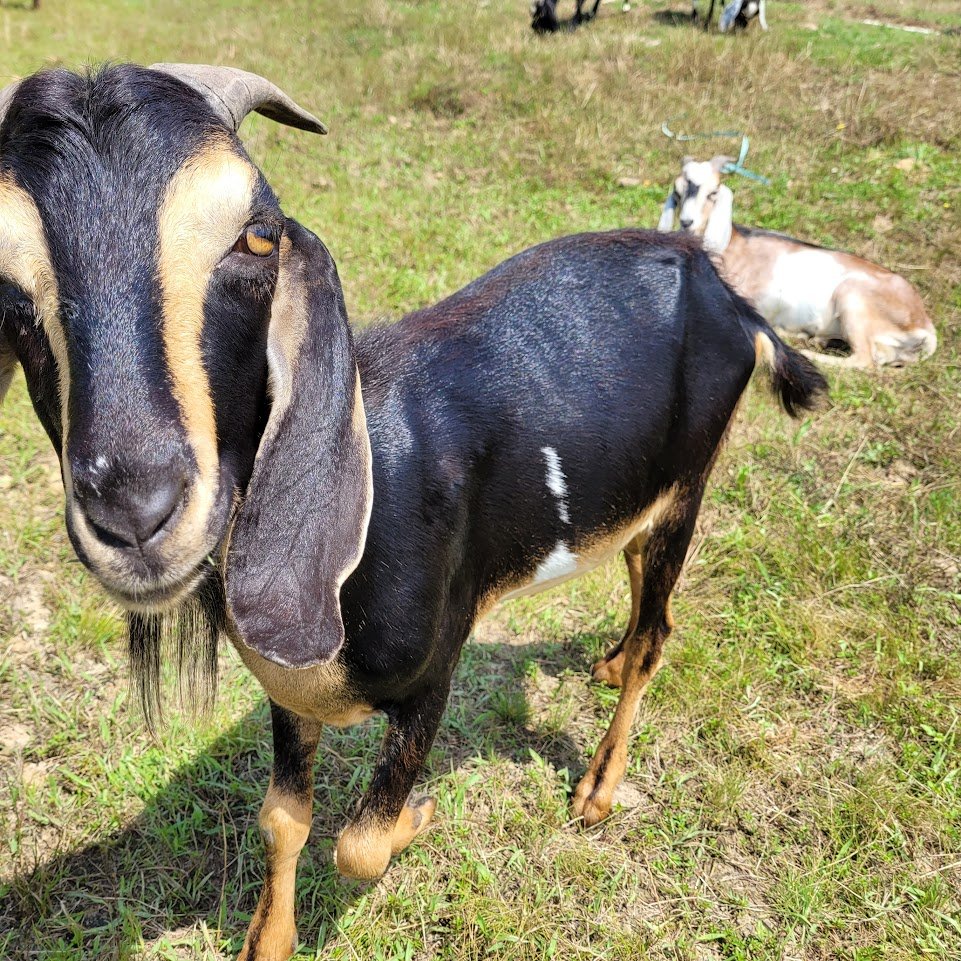From personal experience, ever since we got Livestock Guardian Dogs, we have lost more chickens due to being killed by the dogs than we ever lost to predators. Yes, the dogs will bark at intruders and kill opossums that actually have killed a chicken once, but I think we underestimated our goats’ guarding abilities.
While goats are not commonly used as primary livestock guardians like dogs or donkeys, they can still exhibit protective behaviors and potentially deter predators. Here are some considerations and tips if you are interested in training your goats for guardian-like behavior:
- Selecting Suitable Goats: Some goat breeds are known to have more protective instincts than others. Larger breeds like Boer or Kiko goats may be more inclined to exhibit guardian-like behaviors. However, individual temperament and personality traits also play a role, so observe your goats’ behavior and choose those that show signs of being alert, assertive, and protective.
- Socialization and Bonding: Start socializing your goats with the livestock they will be protecting from an early age. This helps establish bonds and familiarity. Allow them to spend time together in a controlled environment, gradually increasing their exposure and interaction. This can help create a sense of guardianship and protectiveness.
- Expose Them to Predators: Introduce your goats to predator smells and sounds to acclimate them to potential threats. For example, play recordings of predator calls or allow them to smell predator scents on items like fur or droppings. This exposure can help trigger their protective instincts and make them more vigilant.
- Encourage Alertness and Awareness: Encourage your goats to be vigilant and aware of their surroundings. Provide them with a vantage point where they can survey the area, such as an elevated platform or sturdy shelter roof. Reward and reinforce behaviors like standing tall, scanning the surroundings, and vocalizing when they sense potential threats.
- Flock Mentality: Goats are social animals and tend to feel more secure in a group. Ensure they are integrated into a herd or flock and exhibit cohesive behavior. This unity can help deter predators as they are less likely to target a group that appears strong and unified.
- Supervised Livestock Interaction: Initially, closely supervise the interactions between your goats and the livestock they are meant to protect. Observe their behavior to ensure they are not aggressive towards the livestock but rather exhibit protective behavior. Gradually increase the duration and frequency of these interactions as the goats become more comfortable and exhibit desired behaviors.
- Secure Fencing and Shelter: It is essential to have secure fencing and shelter to protect both the goats and the livestock. Adequate fencing should be in place to prevent predators from easily entering the protected area. Ensure the shelter provides a safe retreat for the goats and the livestock when needed.
- Patience and Consistency: Training goats for protective behaviors takes time and patience. Consistency in your training approach and regular reinforcement of desired behaviors are crucial. Reward positive behaviors with treats, praise, or other forms of positive reinforcement to reinforce their protective instincts.

He even intimidates our two Great Pyrenees.
It is important to note that while goats can exhibit guardian-like behaviors, they may not provide the same level of protection as dedicated livestock guardian animals like dogs or donkeys. Evaluate the specific predator threats in your area and consult with experienced farmers or livestock professionals to determine the most suitable approach for protecting your livestock.
We have goats for sale, so if you are interested in selecting to help guard your livestock, let us know.
Charlotte and Timothy Test
Horse -n- Bear Ranch